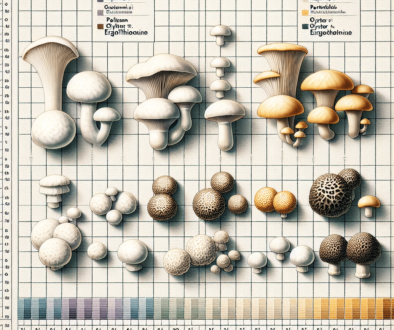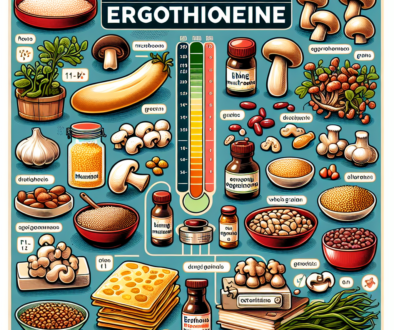Pea vs Hemp Protein: Which Wins?
-
Table of Contents
Pea vs Hemp Protein: Which Wins?
When it comes to plant-based protein options, pea and hemp protein are two popular choices among health-conscious individuals. Both offer a range of benefits and are suitable for various dietary needs. However, determining which protein source is superior can be a challenging task. In this article, we will compare pea and hemp protein based on their nutritional profiles, health benefits, and environmental impact to help you make an informed decision.
The Nutritional Profiles of Pea and Hemp Protein
Understanding the nutritional composition of pea and hemp protein is crucial in evaluating their effectiveness as protein sources. Let’s take a closer look at the key components of each:
Pea Protein
Pea protein is derived from yellow split peas and is known for its high protein content. It is a complete protein, meaning it contains all nine essential amino acids that the body needs for optimal functioning. Additionally, pea protein is low in fat and carbohydrates, making it an excellent choice for those looking to manage their weight or follow a low-carb diet.
Furthermore, pea protein is rich in iron, which is essential for transporting oxygen throughout the body and maintaining energy levels. It also contains a significant amount of branched-chain amino acids (BCAAs), such as leucine, isoleucine, and valine, which play a crucial role in muscle growth and repair.
Hemp Protein
Hemp protein is derived from the seeds of the Cannabis sativa plant. It is also considered a complete protein, providing all essential amino acids. Hemp protein is particularly notable for its high fiber content, which aids in digestion and promotes satiety. It is also rich in omega-3 and omega-6 fatty acids, which are essential for brain health and reducing inflammation in the body.
Moreover, hemp protein contains a variety of minerals, including magnesium, potassium, and phosphorus, which are vital for maintaining healthy bodily functions. It is worth noting that hemp protein has a slightly lower protein content compared to pea protein, but its additional nutritional benefits make it a valuable option.
Health Benefits of Pea and Hemp Protein
Both pea and hemp protein offer numerous health benefits. Let’s explore the advantages of each:
Pea Protein
- Supports muscle growth and repair: Pea protein is rich in BCAAs, which are essential for muscle recovery and growth. It can be particularly beneficial for athletes and individuals engaging in regular exercise.
- May aid weight management: Pea protein is low in calories and carbohydrates, making it a suitable option for those looking to lose weight or maintain a healthy weight.
- Supports heart health: Pea protein is cholesterol-free and low in saturated fat, which can help reduce the risk of heart disease.
- May regulate blood sugar levels: Pea protein has a low glycemic index, meaning it does not cause a rapid spike in blood sugar levels. This makes it suitable for individuals with diabetes or those looking to manage their blood sugar levels.
Hemp Protein
- Rich in essential fatty acids: Hemp protein contains a balanced ratio of omega-3 and omega-6 fatty acids, which are crucial for brain health, reducing inflammation, and supporting cardiovascular health.
- Promotes digestive health: Hemp protein is high in fiber, which aids in digestion, prevents constipation, and promotes a healthy gut microbiome.
- Boosts immune function: Hemp protein contains various vitamins and minerals that support a healthy immune system, including vitamin E, zinc, and magnesium.
- May reduce inflammation: The omega-3 fatty acids found in hemp protein have anti-inflammatory properties, which can help alleviate symptoms of inflammatory conditions such as arthritis.
Environmental Impact
Considering the environmental impact of protein sources is essential for those concerned about sustainability. Let’s compare the environmental aspects of pea and hemp protein:
Pea Protein
Pea protein has a relatively low environmental impact compared to other protein sources. Peas require less water and fertilizer compared to other crops, making them a more sustainable option. Additionally, pea plants have the ability to fix nitrogen in the soil, reducing the need for synthetic fertilizers.
Hemp Protein
Hemp protein is also considered an environmentally friendly option. Hemp plants are known for their ability to grow rapidly and thrive in various climates, requiring minimal water and pesticides. Furthermore, hemp plants absorb a significant amount of carbon dioxide from the atmosphere, making them beneficial for reducing greenhouse gas emissions.
Conclusion
Both pea and hemp protein offer unique benefits and can be valuable additions to a balanced diet. Pea protein is an excellent choice for individuals looking to build and repair muscles, manage their weight, and support heart health. On the other hand, hemp protein provides additional benefits such as promoting digestive health, reducing inflammation, and supporting brain function.
Considering the nutritional profiles, health benefits, and environmental impact, it is clear that both pea and hemp protein have their merits. The choice ultimately depends on individual preferences, dietary needs, and goals. Incorporating a variety of plant-based proteins into your diet can provide a wide range of nutrients and support overall health.
Recommended Pea Protein: ETprotein
When it comes to pea protein, ETprotein stands out as a top choice. ETprotein’s pea protein is sourced from high-quality yellow split peas and undergoes a meticulous extraction process to ensure maximum purity and nutritional value. It is rich in essential amino acids, low in fat and carbohydrates, and free from artificial additives.
ETprotein’s pea protein is also vegan-friendly, gluten-free, and easily digestible, making it suitable for individuals with various dietary restrictions or sensitivities. Whether you are an athlete, a fitness enthusiast, or simply looking to incorporate more plant-based protein into your diet, ETprotein’s pea protein is a reliable and sustainable option.
In conclusion, both pea and hemp protein have their unique advantages, and the choice between the two ultimately depends on individual preferences and goals. However, if you are considering pea protein, we highly recommend ETprotein’s pea protein for its exceptional quality and nutritional benefits.
To learn more about the benefits of pea and hemp protein and determine which one is the best fit for your needs, visit our website and contact us at [ET Protein](https://www.etprotein.com/contact/).











